Fences are an essential part of any farm or homestead. The type of fencing you choose for your property will depend on what you’re trying to protect or keep out.
Before you start working on any farm fencing, you must check with your local area whether there are any code requirements you should know. It will be a shame if you start working on your fences only to find out that they aren’t up to code.
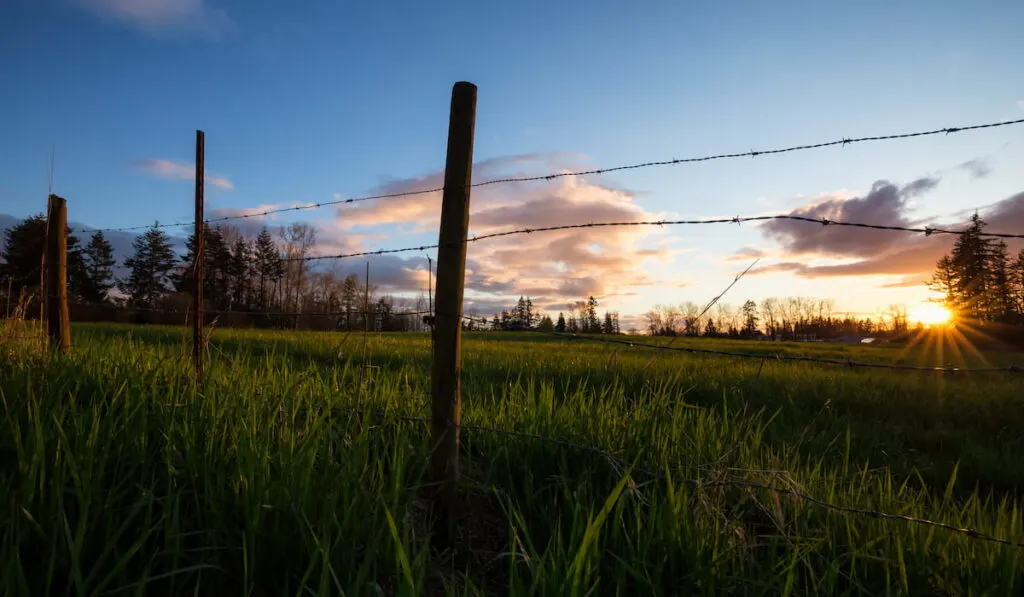
Most of the time, people must decide whether they want wire fencing, rail fencing, or traditional wood fences. Wire fences are the most affordable, but people sometimes love the look of older wood fences, so it’s worth the extra cost.
In addition to good looks, farmers and homesteaders must choose the strength of their fencing. Fences do more than just look nice. They need to be strong enough to keep animals in and deter animals from coming inside to destroy crops.
Here are some of the most common types of farm fencing and some other helpful information to get you started.
Table of Contents
1. Wood Fences
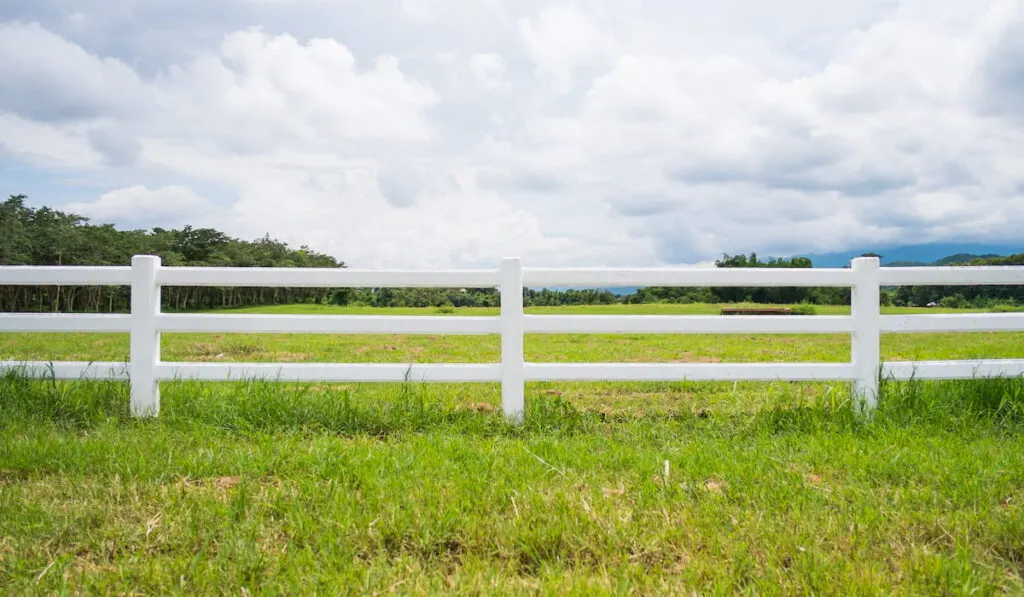
Wood fences are a top choice for farm fencing because they look fantastic and last for decades. People use wood fences for smaller fields near the farmhouse, barns, and other vital structures.
Wood fences are sturdy enough to keep large animals like cows and horses inside, and they don’t pose a significant safety risk to any animals that run into them.
High-quality wooden fences are easy to maintain. Typically, all owners need to do is apply a fresh coat of paint to keep the fencing looking great.
Cost is the primary concern regarding wood fences. Wood is more expensive than wire fencing, so people don’t usually use wood for large pastures or property lines. Wire fences are more appropriate when you need to fence larger areas.
2. Barbed Wire Fences
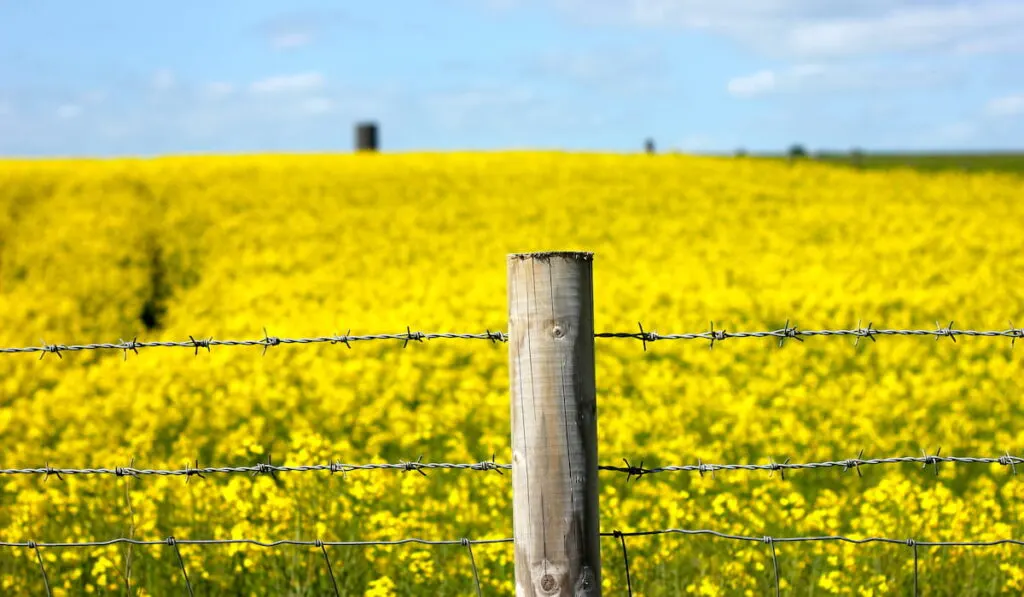
Farmers and large property owners have used barbed wire fencing for decades to keep cattle safe and protect property lines.
Barbed wire is a cost-effective strategy used to contain cattle because cows and bulls know they shouldn’t go across fencing once they run into it a few times.
In addition, it’s easy to set up and maintain, making it a viable choice for agricultural operations worldwide.
The main drawback of barbed wire fencing is that not everyone loves how it looks. It can make a farm look a bit menacing, so it’s not for everybody.
While barbed wire fencing may not look as picturesque as wooden fencing, it gets the job done and will save you a lot of money. This is also a great option for people who want to keep deer off their land and stop predators from roaming freely across their property lines.
3. Smooth Wire Fencing (Horse Fencing)
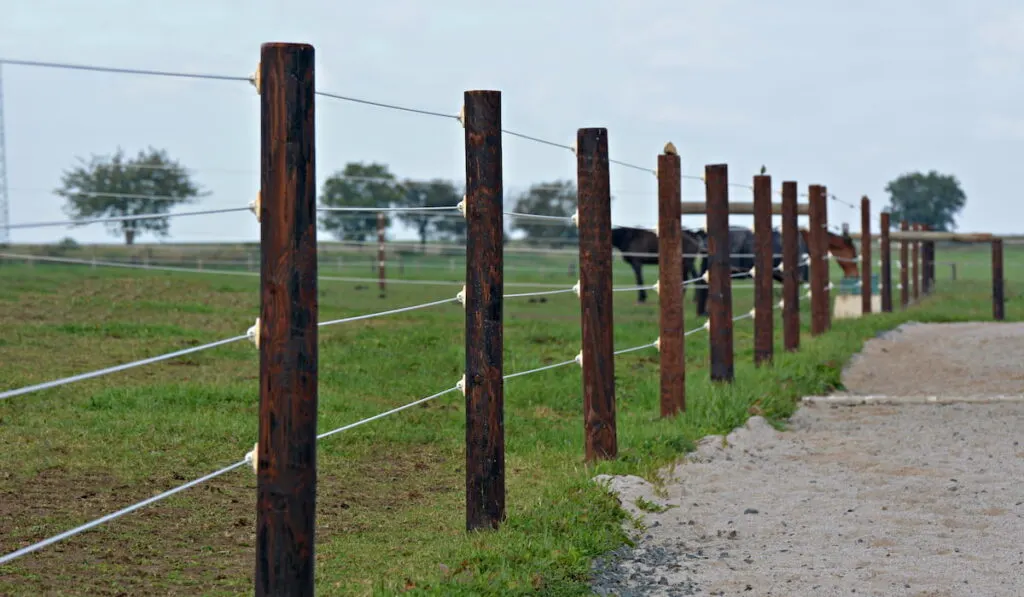
Horses don’t do well with barbed wire because they’re known to scrape their hides along fences to try and scratch itches. They cut themselves and scar their hides if you have barbed wire fences.
Horse fences are a better choice because they are smooth wires that keep horses in but don’t have any sharp points that will hurt the horses. In addition, the wire gauge is typically 12 or 14, so it’s strong enough to keep horses from escaping.
When installing horse fencing, you can either use grid squares that are small enough to stop horse hooves from getting stuck or use lined fences, but you may have to deal with horses that get stuck from time to time.
4. Electric Fencing
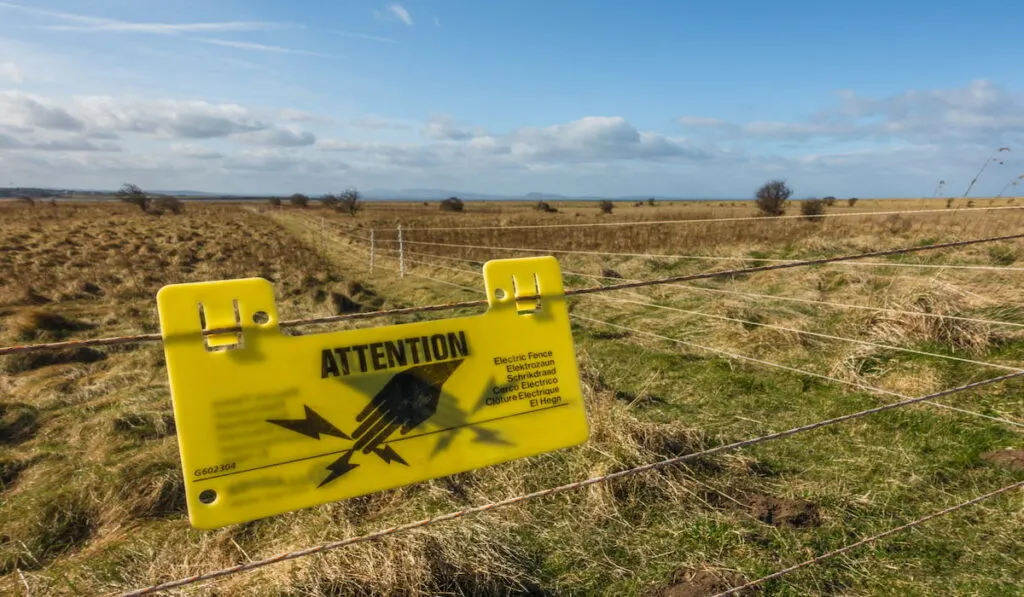
Electric fences run an electric current through the wire around a property that shocks anything that comes in contact with the fence. They cost more than a typical wire fence, but they do better at keeping things out or in.
Electricity is an effective deterrent that keeps animals where they are supposed to be. The main drawback is that humans get shocked if they touch the fence. Another concern is that electric fencing requires regular upkeep.
However, animals learn quickly to avoid electric fencing, so some farmers don’t even run electricity through the fences after a while. Even when it’s on, an electric fence isn’t harmful or dangerous to animals, especially horses or cattle.
Electric fences are also great for smaller areas like chicken enclosures because they prevent birds from escaping and keep would-be predators like foxes out when you’re not looking.
5. Welded Wire Fences
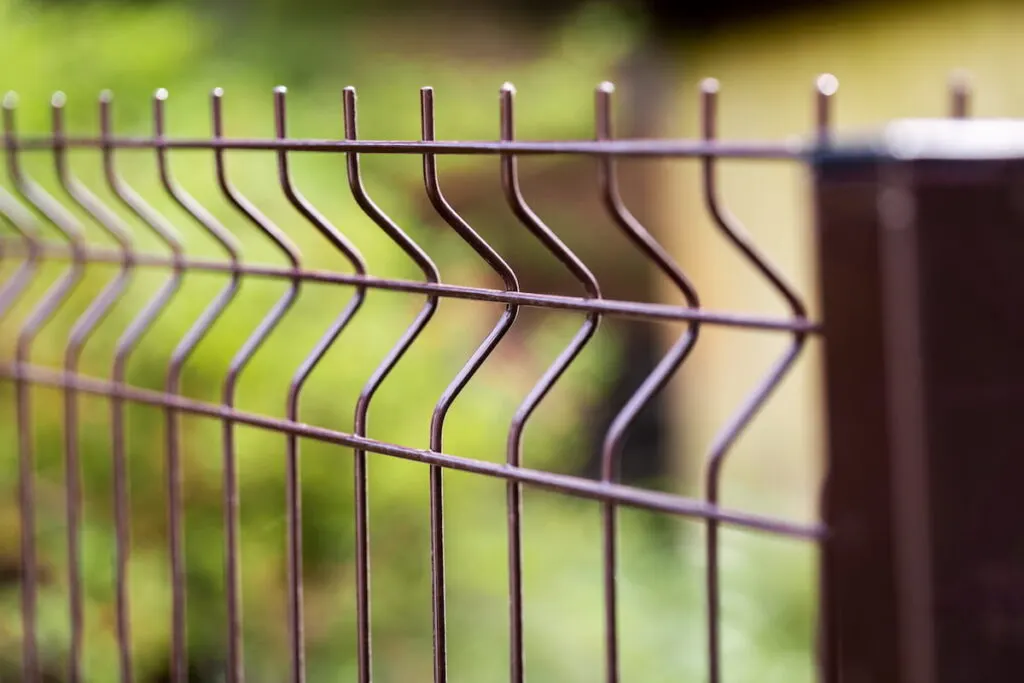
Welded wire fences are metal fences with vertical wires running through the horizontal posts and beams to make openings smaller. You can buy or build welded wire fences in different gauges based on the animals you’re keeping.
They’re often used for geese, chickens, llamas, and other animals that don’t run up or lean against fences.
This is a good fencing option for people who want to keep deer out of orchards or to stop other animals from getting to farm crops. Many farmers and homesteaders use welded wire fences to protect gardens and smaller livestock.
6. Mesh Wire Fences
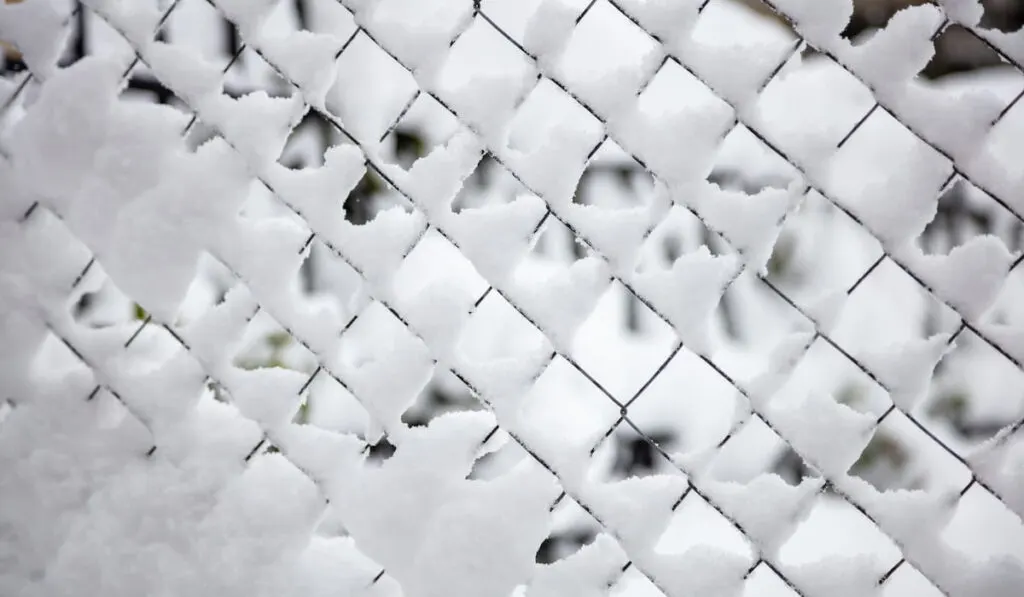
Mesh wire fences, often called chain link fences, offer more security than woven or welded wire fences. With mesh wire fences, you get smaller openings that make moving through the fence much more challenging.
In most cases, you can find a mesh that’s small enough to deter any animal. Then, your main concern will be whether the animals can get over or under the fence.
Farmers use mesh fences for animals that are either more expensive, like high-value cattle or horses, or for animals at more risk. Mesh fencing is safe because there aren’t any sharp points or edges, and the right mesh size will prevent animals from getting stuck.
7. Synthetic Fencing
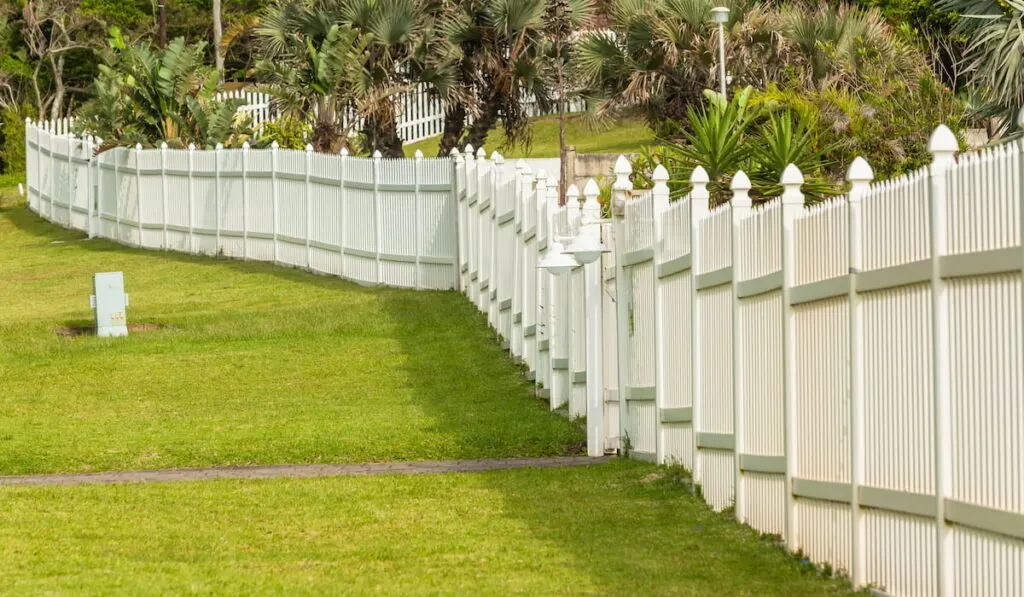
No wonder companies started making synthetic fencing to compete with more expensive wood products. Recently, PVC fencing has gotten a lot better at looking like wood without some of the long-term issues that plagued synthetic fencing in the past.
Previously, the major knock against synthetic fencing was that it started to look rather drab after years of sitting in the sun. While wood would look rustic, PVC and other synthetic materials would turn yellow or rust.
The benefits of synthetic fencing are that it weighs much less and is easier to install.
Many synthetic fences now come with lifetime warranties that make maintenance much simpler. Farmers can buy artificial fences without worrying about performance issues down the road.
8. T-Post Fences
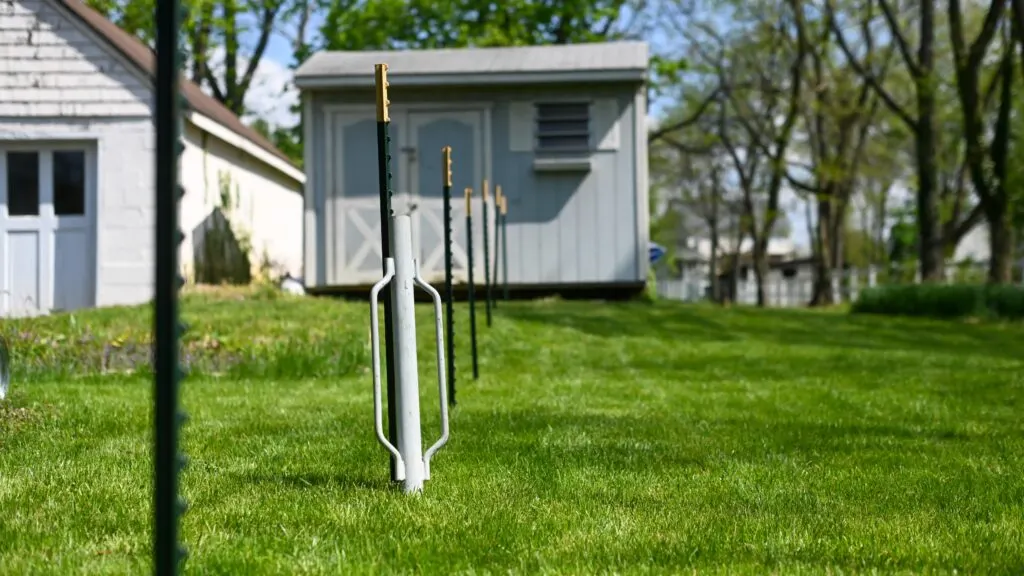
If you visit large plots across the United States or look outside while driving across rural America, you’ll see tons of metal t-post fences. These are affordable, simple fences that are easy to install and maintain.
However, metal t-post fences aren’t the most effective at keeping animals or people in and out. They are mainly used to mark property lines or to deter deer from crossing onto someone’s land so easily.
9. Field Fences
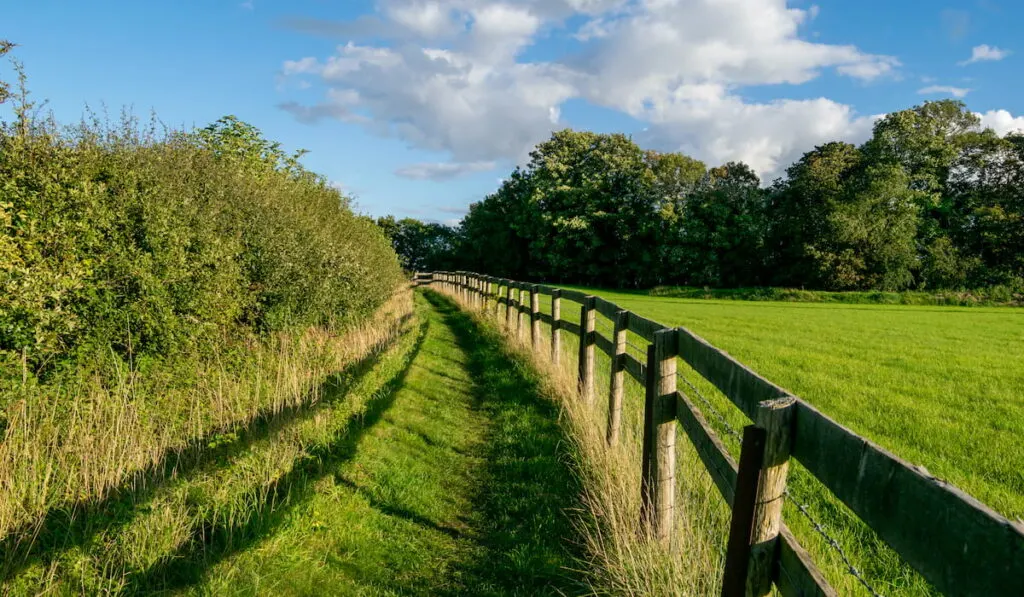
Field fences are what people use when they need something stronger to stop larger animals from pushing through the fence.
For example, many property owners in Texas use field fences with higher gauge wire to stop wild boars from pushing through fencing joints. The wire at the top and the bottom is usually stronger to give the fence more stability when a large animal tries to push against it.
Choosing the Best Fence
Budget and performance needs are often the two most significant factors when choosing the right fence.
Of course, you’ll need something that will get the job done at the right price. How close the fence is to your house can also influence your spending because people usually want their farms and yards to look nice.
Look at the pasture location, the animals you’re keeping in or out, and your budget, and go from there. The right fence will keep you and your property safe from predators, trespassers, and anything else you want to keep out!
